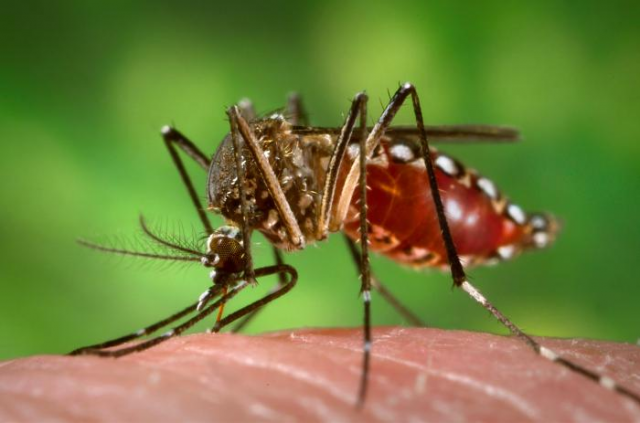Birth defects strike 1 in 10 U.S. pregnancies impacted by Zika infection
Country prepares for the start of of mosquito season.

As the weather gets warmer, public health officials are bracing for more outbreaks of Zika virus infections in this country.
Cooler weather temporarily stemmed the spread of the virus, which hit over 5100 Americans in 2016. However, in the interim since my last report on this topic in November, researchers have made a troubling discovery.
Based on reports from South America, the pathogen is believed to cause a wide array of neurological birth defects when women become infected when pregnant. Now, reports from women in this country who have given birth after infection confirm the potential health impact.
One in 10 pregnant U.S. women with confirmed Zika infection in 2016 had a baby with virus-related birth defects, federal health officials reported Tuesday.
The U.S. Centers for Disease Control and Prevention last year received reports from 44 states of nearly 1,300 expecting mothers with possible Zika infection. In most cases, Zika was acquired during travel abroad to an area with active transmission of the mosquito-borne virus.
Lab tests confirmed Zika infection in 250 of the women. Of those, 24 completed their pregnancy with a fetus or baby that suffered birth defects linked to the virus, the CDC said.
Legal Insurrection readers will recall that Florida was the epicenter of the Zika outbreak in this country. Public Health officials are preparing for the opening of mosquito season.
Preparations for this year’s mosquito season have involved a dramatic expansion of the Miami-Dade County Public Works and Waste Management Department. Gayle Love, a senior division director at the department, said her agency is in the process of hiring 42 new employees, including a medical entomologist.
“After we responded to the Zika challenge, we just kept going,” Love said in an interview. “After last year, we saw the level of intensity that was required for our response.”
The department last year hired 200 temporary employees and contractors to spray chemicals meant to kill mosquitoes around the Miami-Dade area. This year, they will hire more contractors, and the agency is already monitoring 130 traps set up throughout the county. If those contractors find any more than 10 female Aedes aegypti mosquitoes in a trap, they will spray the area to contain the population.
There is some good news to share, however. Federal researchers indicated that they have started a new phase of testing a vaccine to protect against the Zika virus.
The $100 million trial will test the experimental vaccine in 2,500 volunteers in the U.S., Mexico, Puerto Rico, Brazil and other countries affected by the mosquito-borne virus, the National Institutes of Health said.
… Several Zika vaccines are in early, Stage 1 or preclinical studies. This particular vaccine is the furthest along in development. It uses a small piece of DNA with a bit of Zika genetic material inserted.
It prompts an immune response against the virus, [Dr. Anthony Fauci, director of the NIH’s National Institute of Allergy and Infectious Diseases] said.
“There are no safety concerns and the immune responses that we are getting are looking quite good so far,” he told reporters.
Let’s hope that the testing a successful, as it appears that Zika is as going to as difficult to remove from this country as an unvetted refugee.
Donations tax deductible
to the full extent allowed by law.








Comments
If only we had an insecticide that would kill mosquitoes and be harmless to humans and wildlife…
Like DDT?
I’ll just throw this out there, because it isn’t only pregnant woman who may be impacted by Zika http://www.cbsnews.com/news/zika-virus-guillain-barre-syndrome-paralysis/
As far as I am concerned, this is not just speculation. GBS can be deadly.